The Simpsons’ cultural durability and eerie foresight are unparalleled in television. This animated sitcom has followed the humorous escapades of the Simpson family in the made-up town of Springfield since its 1989 premiere. In addition to its humor, sarcasm, and lovable characters, The Simpsons is known for its seemingly remarkably accurate future predictions. From technological advancements to political events, and even global phenomena, the show has left fans wondering: is this pure coincidence, or does it hint at something deeper?
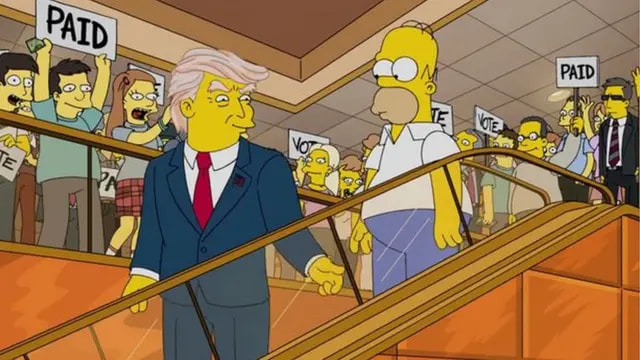
Predictions That Have Come True
1. Donald Trump’s Presidency
In the 2000 episode “Bart to the Future” (Season 11, Episode 17), one of the most well-known Simpsons predictions was made. The episode imagined a future where Lisa Simpson becomes president and inherits a national financial crisis from her predecessor, Donald Trump. While this seemed like an outlandish scenario at the time, Trump was elected President of the United States in 2016.
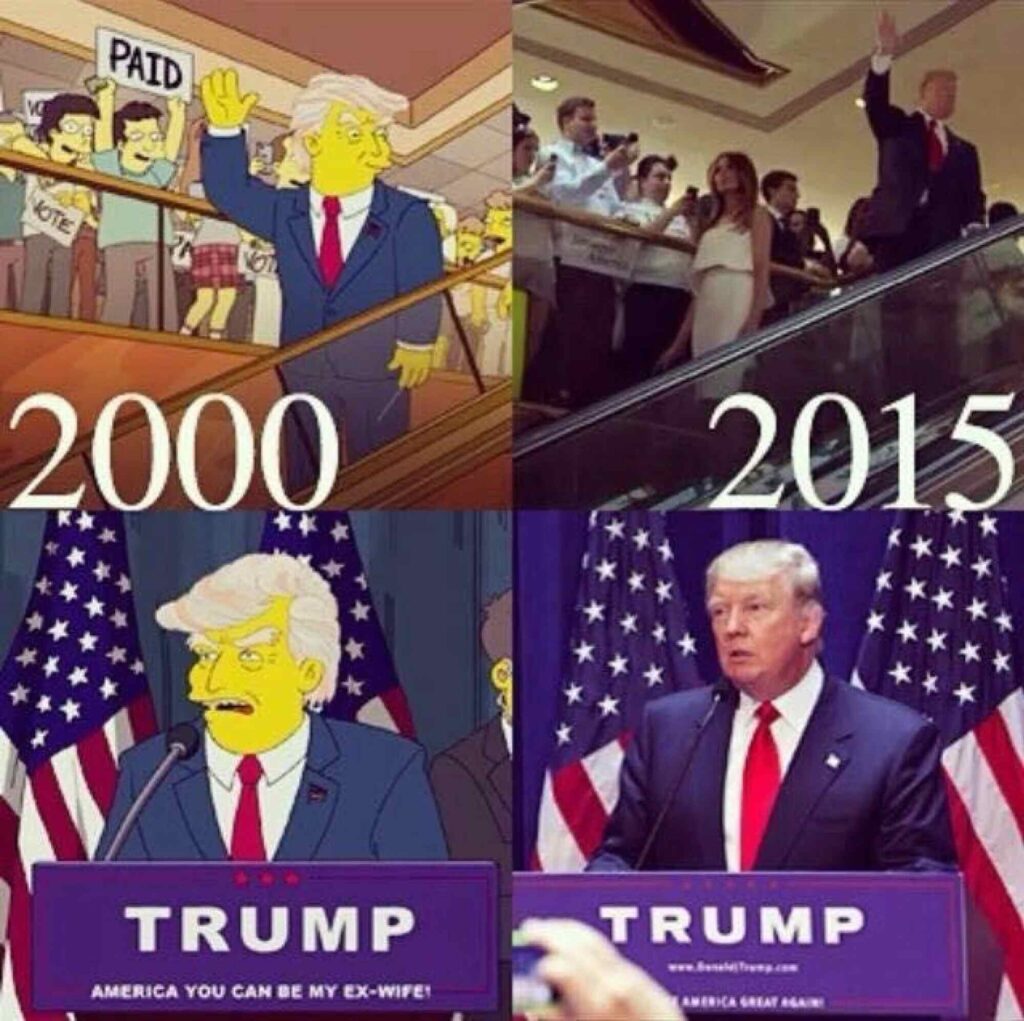
The eerie accuracy of this prediction doesn’t stop at his presidency. The show also depicted scenes with Trump descending an escalator, mirroring his actual campaign announcement, and even included a strikingly similar hand gesture he would later become known for.
2. Smartwatches
The 1995 episode “Lisa’s Wedding” (Season 6, Episode 19) features Lisa using what appears to be a smartwatch-like device. At the time, wearable technology was a far-off dream, yet two decades later, devices like the Apple Watch became a staple of modern life.
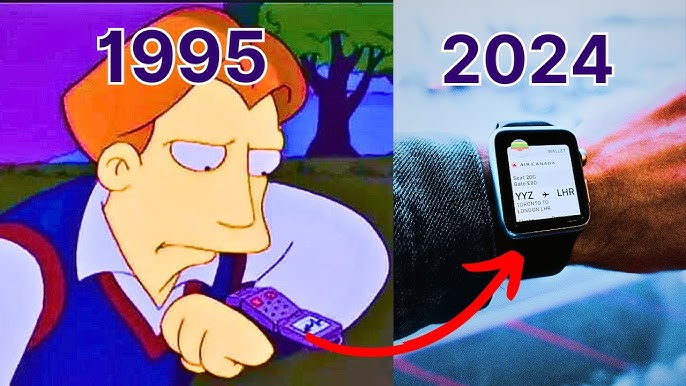
3. Disney Acquiring 20th Century Fox
The 20th Century Fox logo is shown alongside a sign that states, “a division of Walt Disney Co.” in a small joke in 1998’s “When You Dish Upon a Star” (Season 10, Episode 5). Disney announced in 2017 that it had paid $71 billion to acquire 21st Century Fox, a deal that would change the entertainment industry forever.
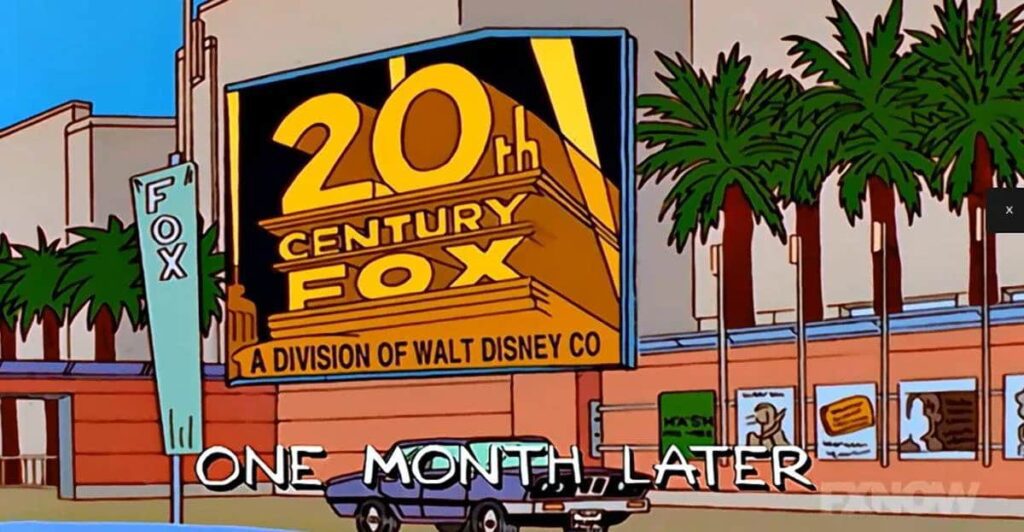
4. The Higgs Boson Discovery
The 1998 episode “The Wizard of Evergreen Terrace” (Season 10, Episode 2) features Homer working on complex mathematical equations. One of the equations on the chalkboard closely approximates the mass of the Higgs boson particle, which wasn’t confirmed by scientists until 2012.
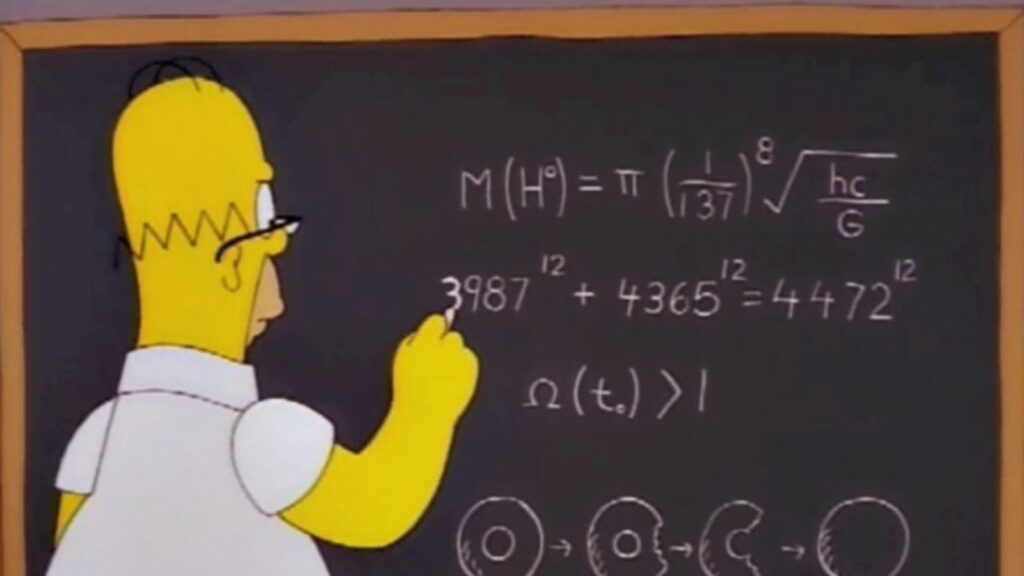
5. Video Calls
In the same futuristic episode, “Lisa’s Wedding”, video calls are prominently featured. Decades before FaceTime and Zoom became commonplace, the show imagined a world where people could communicate face-to-face via screens.
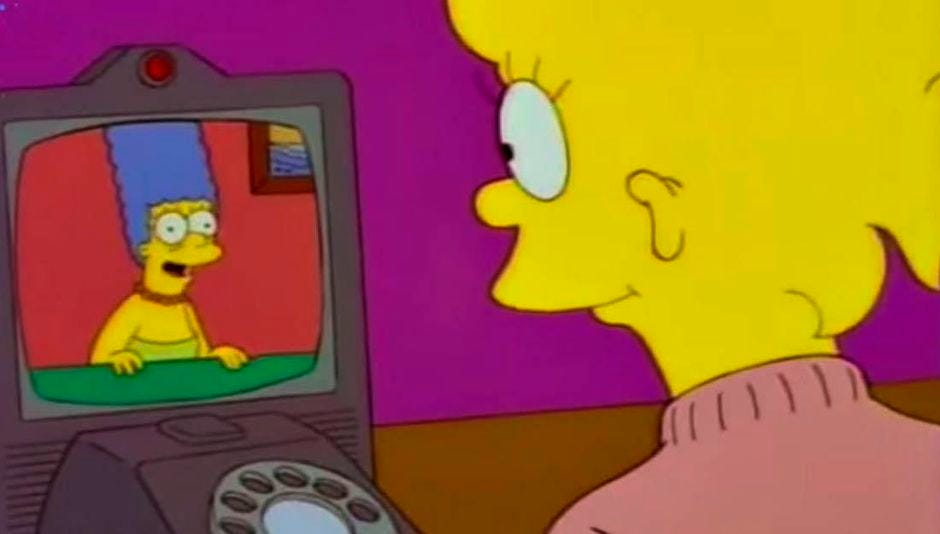
6. The Three-Eyed Fish
In “Two Cars in Every Garage and Three Eyes on Every Fish” (Season 2, Episode 4), Bart discovers a mutated three-eyed fish named Blinky in a river near Springfield’s nuclear power plant. A true three-eyed fish was discovered in an Argentinean reservoir close to a nuclear power plant in 2011.

7. Ebola Outbreak
In the 1997 The Simpsons episode “Lisa’s Sax” (Season 9, Episode 3), Marge suggests Bart pick up a book titled Curious George and the Ebola Virus. While Ebola outbreaks had been documented before, this subtle nod took on an uncanny significance years later during the 2014 global Ebola epidemic that dominated headlines worldwide.
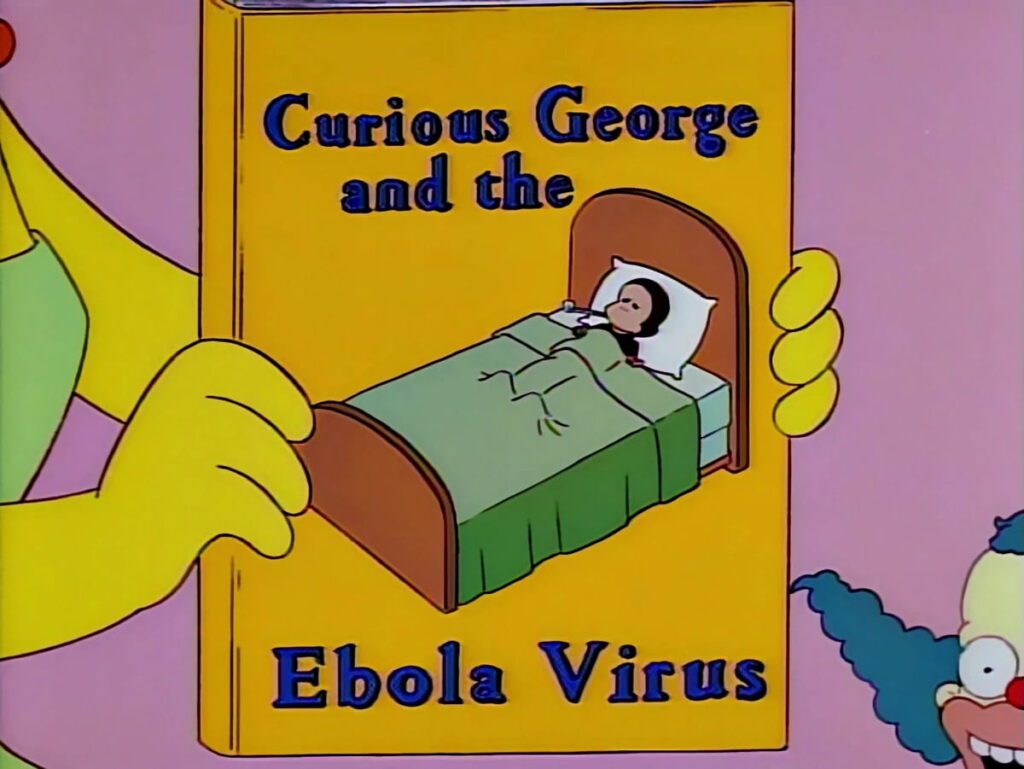
8. Game of Thrones’ Shocking Twist
The portrayal of a dragon destroying a settlement in the Game of Thrones spoof “The Serfsons” (Season 29, Episode 1) closely resembles a significant narrative development in the show’s last season (Daenerys Targaryen’s invasion on King’s Landing). Simpsons predicted the plot two years before it was aired.
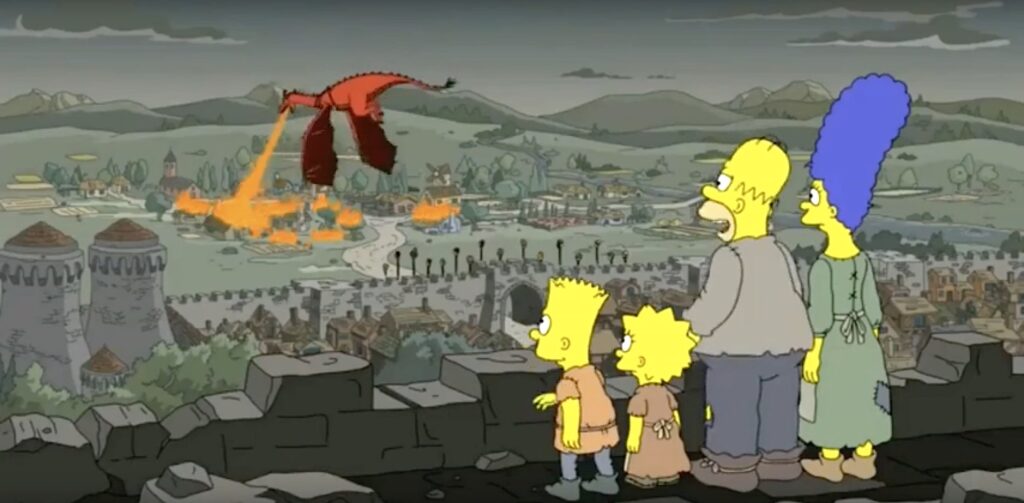
9. Auto-Correct Technology
In the 1994 episode of “Lisa on Ice” (Season 6, Episode 8), a machine tries to automatically change the phrase “beat up Martin” to “eat up Martha.” This was a foreshadowing of the annoyance that many people would later feel when using the initial autocorrect software on cellphones.
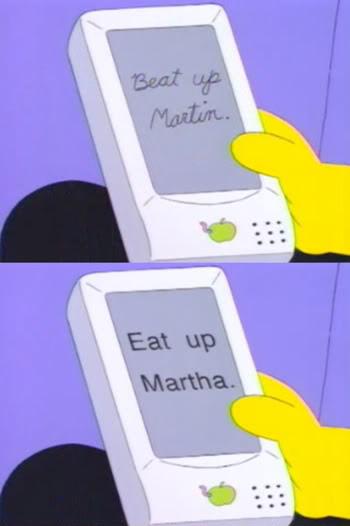
10. Lady Gaga’s Halftime Performance
Lady Gaga is shown playing a concert while floating in midair in “Lisa Goes Gaga” (Season 23, Episode 22). Five years later, during the Super Bowl LI halftime show, Gaga made a dramatic entrance by descending from the roof in a harness.

11. COVID-19 and “Murder Hornets”
While The Simpsons didn’t explicitly predict COVID-19, the 1993 episode “Marge in Chains” (Season 4, Episode 21) depicts a fictional virus called the “Osaka Flu” spreading rapidly after arriving in Springfield. What’s more uncanny is the simultaneous emergence of “killer bees” in the episode, a concept that eerily paralleled the 2020 panic over “murder hornets.”
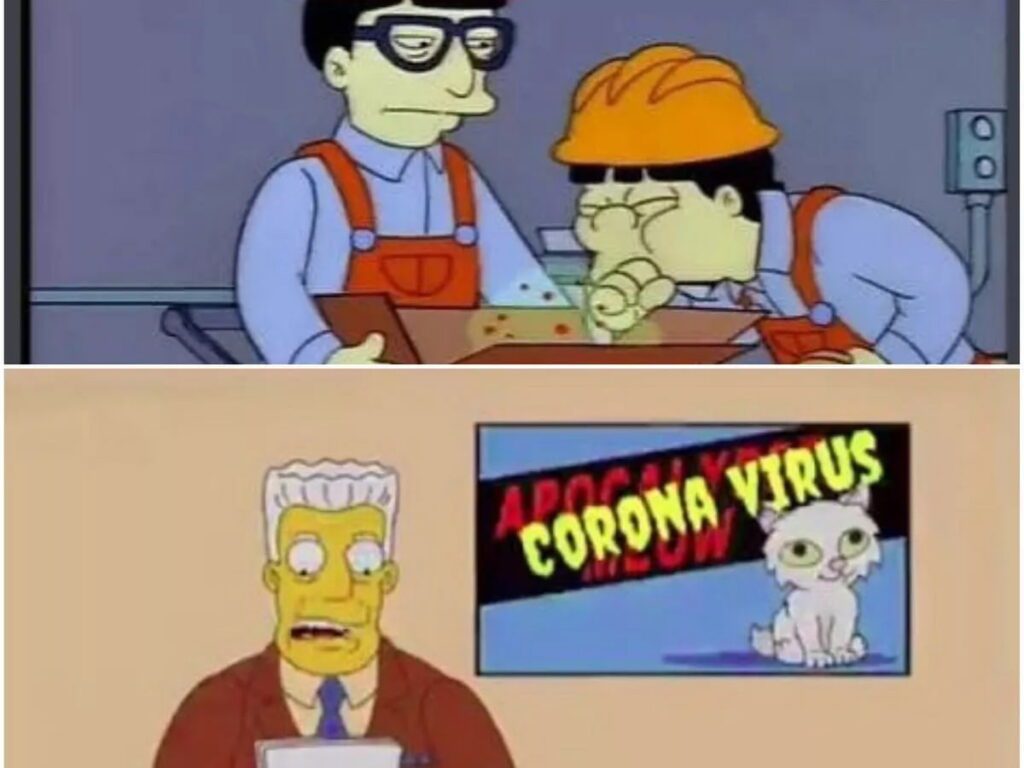
Predictions Yet to Happen (But Could They?)
1. Colonizing Mars
In The Marge-ian Chronicles (Season 27, Episode 16), Lisa boldly signs up to join a pioneering mission aimed at establishing a human colony on MarsWith companies like SpaceX actively working toward manned Mars missions, this prediction might not be far off.
2. Mind-Controlled Technology
The Simpsons Movie (2007) introduced a scene where the government uses mind-controlled drones to spy on citizens. Given advancements in brain-computer interfaces by companies like Neuralink, this concept might not remain fictional for long.
3. Virtual Reality Food
In “Bart to the Future”, the show imagines a world where people can experience food through virtual reality. As VR technology progresses, the integration of sensory stimulation to mimic taste and smell is an exciting, if distant, possibility.
4. President Ivanka Trump
In the same episode predicting Donald Trump’s presidency, a joke references “Ivanka 2028” as a presidential campaign slogan. Considering Ivanka’s involvement in politics, this could become a reality.
5. Environmental Collapse and Dome Cities
In The Simpsons Movie, Springfield found itself encased within a massive dome, serving as a barrier to protect the town from overwhelming pollution. With growing concerns about climate change, some scientists have discussed the possibility of domed cities as a last resort for habitable living spaces.
6. Rise of Robot Takeovers
In “Itchy & Scratchy Land” (Season 6, Episode 4), malfunctioning animatronic characters turn against visitors, a clear homage to Westworld. As robotics and AI become more autonomous, some experts warn of potential risks associated with advanced AI systems.
Conclusion
Whether by sheer chance, clever foresight, or something more mystical, The Simpsons has an uncanny ability to mirror reality and anticipate the future. Its longevity and cultural relevance make it a unique lens through which we can reflect on societal trends, technological advancements, and political shifts. As the world continues to change, we can only wonder: what other seemingly ridiculous gags from Springfield will one day become reality?
Frequently Asked Questions
1. How does The Simpsons predict the future?
The show’s predictions often stem from the writers’ ability to extrapolate current trends into plausible future scenarios. Their knack for satire and social commentary makes it easier to guess where society might head. Some predictions, however, seem too specific to dismiss as mere coincidence.
2. Have the writers commented on these predictions?
Yes, the writers have often remarked on the phenomenon. Al Jean, a longtime showrunner, has stated that the sheer volume of episodes (over 700) increases the likelihood of coincidences. However, he also credits the writers’ intelligence and foresight in crafting believable scenarios.
3. Are there predictions that turned out wrong?
Absolutely. The Simpsons has also made numerous outlandish predictions that never materialized, such as a robotic Richard Simmons or a hamburger earmarked as currency.
4. Is The Simpsons still making predictions?
Yes, new episodes continue to include satirical takes on contemporary issues, which may one day be regarded as predictions. For example, recent episodes have explored cryptocurrency, the metaverse, and climate disasters.
5. Is The Simpsons based on real-life events?
While the show draws heavily from real-world culture, politics, and history, its content is largely fictional and exaggerated for comedic effect.
Reference :http://www.britannica.com





